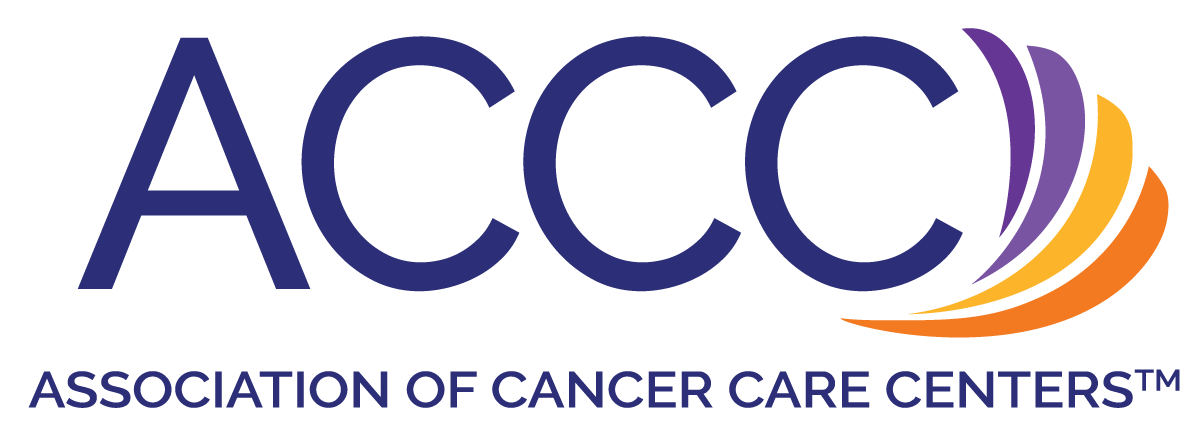
Multicancer Early Detection May Change the Screening Game—If We Learn From the Past

A session at the ACCC 2023 Annual Meeting and Cancer Center Business Summit addressed the promise and potential drawbacks of multicancer early detection (MCED) testing for patients in the primary care setting.
Catching cancer in its early stages is a crucial step to improve outcomes for patients, and multicancer early detection (MCED) technology has the potential to increase the number of
A presentation at the Association of Community Cancer Centers (ACCC) 2023
“The concept of MCED is to develop a single blood test that is capable of detecting multiple cancer types. The idea here is that if we're successful, we’ll substantially expand the reach of early detection beyond the 4 standard-of-care cancers that we have today and will identify cancers in the earlier stages when you're more amenable to effective therapies,” Beer said. “Because these tests are blood tests, [there is] opportunity to expand access to screening, including hard-to-reach populations.”
While routine screening is recommended for breast, colorectal, cervical, and lung cancers, Beer noted that the majority of incident cancers and cancer-related deaths are from cancers that do not have standard-of-care screening recommendations. MCED testing has potential to increase the number of cancers that can be identified early on with regular testing, and the simplicity of a blood draw may help expand access to underserved communities.
Beer cited results from
The 26 cancers identified by MCED testing in the study were located in 10 different organs, only 3 of which (breast, colorectal, and lung) had standard-of-care screening protocol. Beer also cited a
The potential benefits of MCED testing are substantial: early diagnosis of a range of cancers, the majority of which have no screening recommendations in place; and a high specificity design that would limit false positives. However, there are possible drawbacks that would impact not just patients, but also physicians.
“Unfortunately, medicine is full of examples of where technology was way ahead of our understanding about how best to apply it [and] how best to implement it into care,” Chambers said. “So I think we should be wary as we move forward to make sure we do this correctly.”
Chambers lauds the advances that have resulted from progress in genomic testing, such as targeted therapies and personalized medicine. But in other instances, genomic testing has increased stress on patients and their primary care physicians—at his practice, for instance, the popularity of at-home genetic testing led to an influx of patients concerned about the risk of certain health conditions based on their gene variants.
Patient stress is also a concern due to the possibility of false positives, which can lead to overdiagnosis and overtreatment, as well as increase health care system costs. From a patient’s perspective, there may be a significant level of anxiety while waiting for results or in the case of a false positive. Another worry is that patients may be inclined to forego standard-of-care screening, which would still be recommended even when MCED testing is implemented.
In addition to concerns surrounding patient reactions to MCED testing, there is a question of accessibility when new, potentially impactful technologies are introduced. On one hand, the relatively easy process of drawing blood for an MCED test could make screening more accessible in underserved areas where it may be difficult to access the equipment needed for standard-of-care screening. But if history repeats itself, the latest technology might not reach those who could benefit from it.
“The history of medicine is that new technology is not applied equitably when it first comes out,” Chambers said. “Later, if it's shown to be useful and helpful, it might be covered by insurance, and then more people will have access to it. As it stands now, it might be only available to people who have more dollars.”
Like any novel technology, there are pros and cons to be considered and lessons that can inform the implementation of MCED in the future. Gradual and intentional introduction of technology such as MCED testing is crucial, both presenters agreed.
“We're mindful of the lessons of the past about overdiagnosis and overtreatment, and focusing the development of this assay on detecting clinically significant cancers,” Chambers said. “And we're deeply concerned about cancer disparities—these are readily apparent, [and] all of us are keenly aware of the fact that novel technologies historically have at least initially exacerbated, not closed, disparities in care for cancer. So, we want to develop this assay in a manner that enables us to reduce disparities rather than contributing to it.”
Newsletter
Stay ahead of policy, cost, and value—subscribe to AJMC for expert insights at the intersection of clinical care and health economics.









